“Thou Wast Chosen Before Thou Wast Born”
Abraham 3; Moses 4:1–4
Links to the reading in the SAB: Abraham 3, Moses 4
LDS manual: here
Background
The Book of Abraham is arguably the most transparent confabulation in LDS scripture. In 1835, Joseph Smith bought some Egyptian papyri from a traveling mummy exhibition, and claimed to translate them into what is now the Book of Abraham. Even at the time, Egyptologists recognised that the papyri were ordinary funerary documents, having nothing to do with Abraham. Mormon apologists have invented many explanations in which the papyri could be the BoA: maybe the real Egyptologists missed something. Maybe Joseph Smith gave a special magical translation of what the papyri were supposed to say. Maybe what Abraham wrote was on a different part of the papyri that we don’t have. Maybe maybe maybe.
Even for the parts we have, it’s not hard to show that Joseph Smith got it wrong. Here’s what Smith’s copy of Facsimile 1 looked like.
But some bits are missing. What was originally in those gaps? Joseph Smith thought it should go like this:
Egyptologists now know it really looked like this:
That’s the jackal god Anubis, and not a priest.
What’s more embarrassing, Smith gives oodles of explanation of what all the facsimile items mean, and they’re all painfully wrong. From hindsight, we can see that Joseph Smith was B.S.ing as hard as he could. Yet believing Mormons still buy it.
More info at mormoninfographics.com
Main points for this lesson
The Pre-Mortal Life
The pre-mortal life (confession time) is actually one of my favourite bits of Mormon doctrine. I really used to enjoy thinking that we all came from realms of glory. I’d be in a big city and see lots of people, and think, “Gee, how amazing it is that we’re all related.” Fortunately, this is a feeling that I still have access to, thanks to biology. I can still enjoy the idea that we’re part of a big human family, without having to imagine that we were once all together in middle-class potpourri pre-mortality. (Our family also includes other animals, and biology can tell us how related we are. Amazing!)
I also don’t have to think, “Gee, all these people used to believe in Heavenly Father, but they’ve forgotten. Now I have to help get them back on track!” That’s a bit self-flattering.
Also self-flattering is foreordination, the idea that you were set up in the life before this one to accomplish great churchy things. Congratulations, you’ve kept your ‘first estate’ — made it through the first round — and now all you have to do is stay active in the church until you die to get the goodies! It makes you feel like you’ve already accomplished something, and it raises the stakes: you don’t want to throw away all that progress, do you?
The appeal of the pre-mortal life is that no matter what you do, you’re still a perfect person underneath all the bad that’s happened. That can be a powerful motivator. But you can imagine a better version of yourself — and work towards it — without buying into self-congratulatory fiction.
Ask: What age were we in the pre-mortal life? (Answer: In our ‘prime of life’. But what does that mean? Explain that it’s not important to your salvation.)
Video: Watch this more-complete explanation of our Heavenly Father’s plan with the class. Boogie down to the funky beats.
Gender identity
Gender is kind of a complicated area. Our gender identity arises from our bodies, social norms and expectations, and our own sense of self. For some people, gender identity aligns with their biological sex, but other people identify as male, female, both, or neither.
Compare this to the rather simplistic view offered by the LDS Proclamation on the Family:
Gender is an essential characteristic of individual premortal, mortal, and eternal identity and purpose.
“And purpose.”
Wow — talk about a sweeping and unsupported claim. If you’re a dude, you’ve been a dude since pre-eternity, and you’ll be one forever. This view is sometimes called gender essentialism.
There are a lot of problems here. What about intersex people? What about people with androgen insensitivity? You might have heard of this, but if not: Some of us have a Y chromosome, and some of us don’t, but we’re all girls in the womb. After about 60 days, if you’re an XY, you get a shot of testosterone and it’s genetic boyhood for you. But a few of us have bodies that aren’t sensitive to testosterone. That means that they stay girls in the womb, they’re born as girls, and they grow up as girls, but they’re walking around with a Y chromosome.
Video: Show the class this video of Christy North, a woman with androgen insensitivity.
With a belief in premortal gender essentialism, we have to ask silly and unnecessary questions like:
- Was Christy a man in premortality?
- Will she be a man in the hereafter?
- Is it a fair test for her to have a life experience so different from her supposed pre-mortal gender?
Having this belief could make it difficult to accept her gender identity, and that of trans* and intersex people. And there’s enough suspicion and prejudice against them without reasons for adding more.
Gender essentialism has other nasty effects, like limiting women’s choices by keeping them out of the professional world and in the home, and of course denying them access to ecclesiastical authority and having a real voice in their own church.
Gender is far more complicated than the facile pronouncements of elderly men would allow, and reducing the whole thing to two genders — determined since eternity — is unhelpful and unsupported by evidence.
The War in Heaven
According to the myth, Satan wanted to force people to be good and take the glory for himself, while Jesus was more of a pro-choice kind of guy. He wanted the glory to go to the Father, but it didn’t quite turn out that way.
Reading: Assign class members to read parts of this hilarious scene by The Rnegade.
God: Listen up everyone; I have an announcement to make.
Everyone: What is it, God?
God: I have a plan to turn all of you into a god, just like me. I call it The Plan of Salvation.
Crowd erupts in applause
God: Ahem. Ok, so here’s how the plan is going down, yo. Before you can be God’s you’ll need bodies. So, we’re going to create a planet for you to live on, where you’ll be born, raised and die. You’ll also have to choose the right.
Nephi: That’ll be easy. I always choose the right.
God: It won’t be easy. Satan will be there to tempt you.
Adam: Who’s Satan?
God: It’s Lucifer.
Lucifer: Me? What did I do?
God: It’s not what you did but what you will do. You’re going to rebel against my plan.
Lucifer: I am?
God: Yep. It’s ok, though because my plan requires you to rebel against my plan so that you can tempt the others and help them grow.
Lucifer: What the fuck? Do I get some kind of compensation?
God: No. In fact, the exact opposite, you get eternal damnation in Outer Darkness
Lucifer: Jesus Christ!
Jesus: Sup homes.
…
God: Anyway, my plan will require a sacrifice because everyone is going to sin and, for some odd reason, you’re not allowed to pay for your own sins. However, I want a sacrifice who won’t take any credit for his actions.
Jesus: I’ll do it. I’ll tell the humans to give you all the glory. I’m sure they won’t worship me at all, singing praises to my name, dedicating their lives to me and even calling themselves Christians and what not, essentially negating one of the big reasons why you opposed Lucifer’s plan.
God: Awesome.
Read the whole thing on the Exmormon subreddit.
Ask: What was the War in Heaven like, with no physical bodies to fight with?
Answer: We had to fight with opinions, kind of like the Internet. The War in Heaven basically resembled one big web forum, with the GodMod finally bringing down the ban-hammer on 1/3 of everyone. They became sort of like 4chan or the Dark Web.
Race and pre-mortality
Ask: Were people of African descent less valiant in the pre-mortal life?
Answer: Absolutely not. According to the Church’s recent statement “Race and the Priesthood“:
Around the turn of the century, another explanation gained currency: blacks were said to have been less than fully valiant in the premortal battle against Lucifer and, as a consequence, were restricted from priesthood and temple blessings.
It gained currency, did it? How did it do that? I can’t imagine where people got this idea, except that it was taught by LDS leaders.
Reading: Have a class member read this excerpt of a letter from Joseph Fielding Smith to Joseph Henderson.
“According to the doctrine of the church, the negro because of some condition of unfaithfulness in the spirit — or pre-existence, was not valiant and hence was not denied the mortal probation, but was denied the blessing of the priesthood.”
Be sure to point out that at this time, Smith was not the president of the Church, so really, how could he have known anything about its doctrine? He’d only been President of the Quorum of the Twelve for 12 years; you might as well ask the cat. An important part of the Church is continuing revelation, which means that statements from church leaders — but only important ones — must be taken extremely seriously, until the moment they’re retroactively disclaimed because they’re distasteful or embarrassing.
And in fact, Smith was going against Brigham Young, who earlier said, “No, they were not [neutral], there were no neutral [spirits] in Heaven at the time of the rebellion, all took sides …. All spirits are pure that came from the presence of God.”
Reflect on what a weird and unreliable method of getting knowledge this is. As we saw in the last lesson, this would be easy for a prophet to clear up, but instead we get centuries of contradictory statements.
Additional Teaching Ideas
Foreordination
Teaching idea from the real manual:
Draw 14 blank spaces on the chalkboard to represent the 14 letters in the word foreordination. Explain that the word represented by these spaces relates to the premortal life.
Give class members 14 chances to guess which letters form the word.
It’s Hangman! Are they not allowed to say hangman? Anyway, here’s how this goes in class:
Everyone: It’s foreordination!
Gospel Doctrine Teacher: But you didn’t guess any letters! How did you know?
Everyone: We remember it from four years ago! And four years before that!
Ask: What were you foreordained to do? Perhaps be sexually abused? In 1986, the Ensign magazine ran this item in their “I Have a Question” series, explaining that God may have purposely placed children in abusive families, so that they could break some putative but now-discredited ‘cycle of abuse’. Try this on for size:
So many children are abused, offended, and abandoned. If little children are precious to God, what justification can there be for permitting some to be born into such circumstances?
…Indeed, my experience in various church callings and in my profession as a family therapist has convinced me that God actively intervenes in some destructive lineages, assigning a valiant spirit to break the chain of destructiveness in such families. Although these children may suffer innocently as victims of violence, neglect, and exploitation, through the grace of God some find the strength to “metabolize” the poison within themselves, refusing to pass it on to future generations. Before them were generations of destructive pain; after them the line flows clear and pure. Their children and children’s children will call them blessed.
…
In a former era, the Lord sent a flood to destroy unworthy lineages. In this generation, it is my faith that he has sent numerous choice individuals to help purify them.
Allow members of the class to give their own explanations for the failure of a loving god to prevent abuse, each one more morally callous than the last. Be astonished at the ease with which they can do this.
Kolob and Kokaubeam
There’s some proto-sci-fi in here, where God (or Jesus) mentions the names of stars (or perhaps planets) such as Kolob, Shinehah, Kokob, Olea, Kokaubeam. This chart by u/narcberry (Reddit thread) explains everything.
Activity: Try to say the names of these stars (or perhaps planets) with a straight face.
Occasionally someone will actually try to figure out where Kolob is (often Sagittarius A), and I always think “Bless their hearts,” as one would with someone who’s slightly ‘touched’.
It also kind of pisses me off. That’s the problem with religious scams: the con artist makes enough off of it to last for their lifetime, but they waste other people’s time for generations. Think of all the human time and effort that’s been dedicated to baloney. Entire lifetimes.
It’s why I say that bad answers are worse than no answers at all. At least when you have no answers, you might look for — and find — a good one. When you have bad answers, you don’t.
Rounding out the Egyptian theme:
Activity: Listen to Ralph Vaughan Williams’ wonderful “Five Variants of Dives and Lazarus”. This tune was borrowed for the LDS hymn, “If You Could Hie to Kolob”.
While listening, try not to think of Kolob and those dorky invented names. Fail.
Ponder how terrible it is that this great music will be forever linked in your mind to some maniac’s bad fiction.
Testify that religion poisons everything.
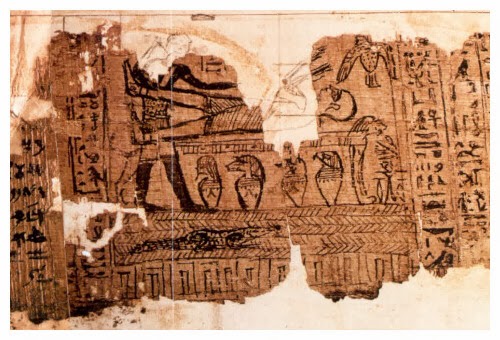
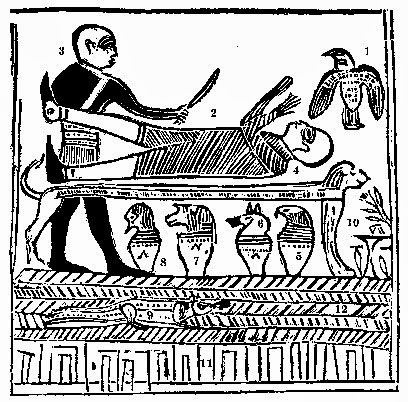
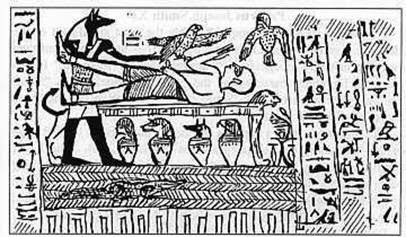
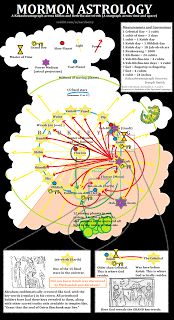
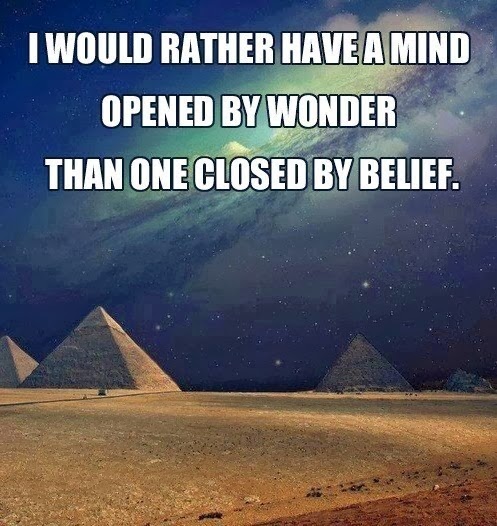
12 January 2014 at 3:37 pm
I am so happy to have this here. Keep it up.
14 January 2014 at 4:38 am
(I deleted the comment because it appeared to be a duplicate.) Wanted to say that you did another great job with this lesson. A lot of crazy to point out and correct. You made good points and even helped me talk about gender with my 11 year old in a way we hadn't yet.
8 April 2015 at 10:32 am
http://findingkolob.weebly.com/
You should look at my website, m8.